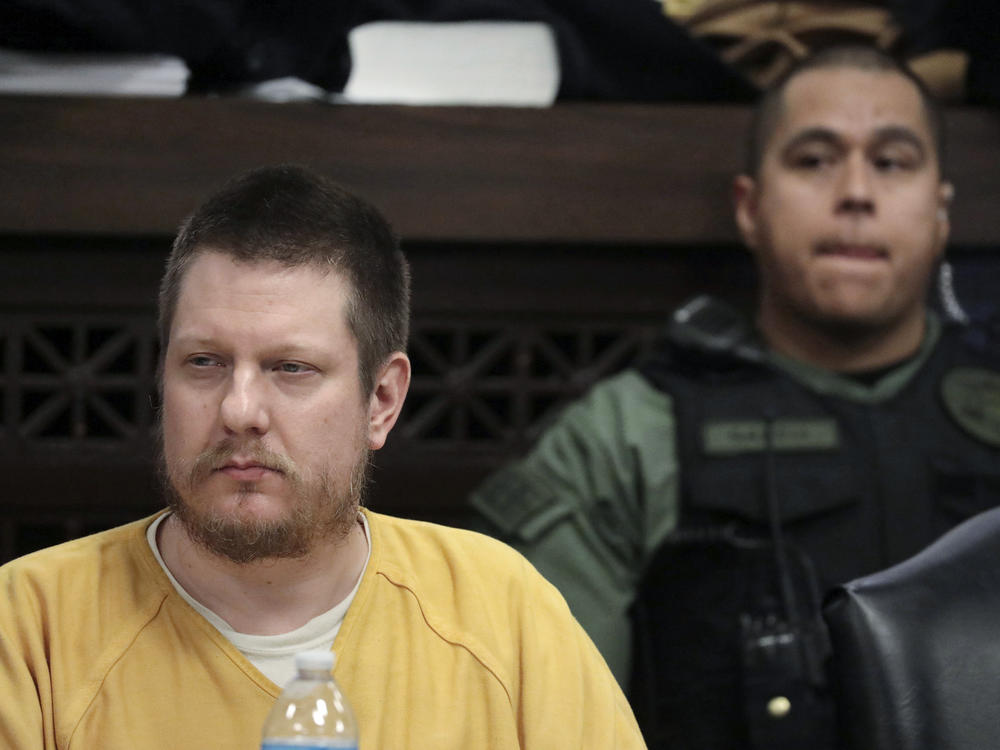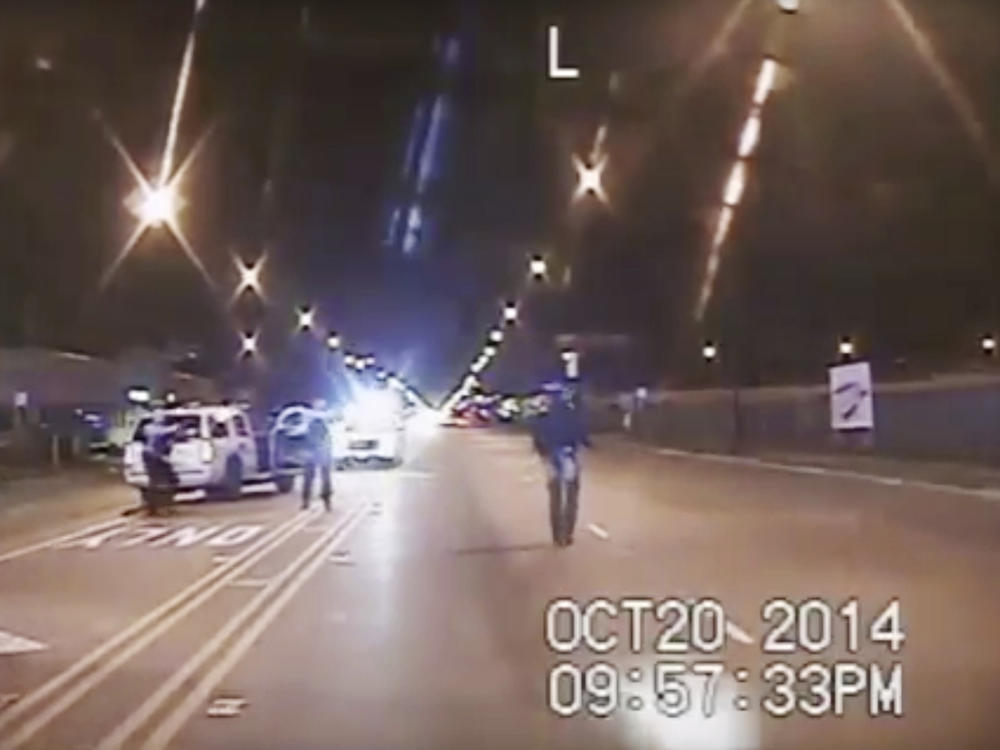Section Branding
Header Content
The officer who killed Laquan McDonald is free after three years. Activists are angry
Primary Content
Former Chicago police officer Jason Van Dyke is a free man. Van Dyke served less than half of his nearly seven-year prison term for the 2014 fatal shooting of Laquan McDonald.
Van Dyke is white. McDonald, 17, was black. It is a case that roiled the city, caused widespread protests and sparked court mandated police reforms after a blistering report by the U.S. Department of Justice. Among the reports findings: Chicago Police routinely used excessive force and violated the rights of people of color.
It was Oct. 20, 2014, when a Chicago police responded to reports that a black teenager carrying a knife was breaking into cars. Laquan McDonald had slashed some tires of a truck and was being followed on a southwest side Chicago street by a numbers of police officers waiting for a unit with a Taser.
Jason Van Dyke and his partner were among the the last officers to arrive. Van Dyke got out of his car, and within seconds, he shot McDonald 16 times — many of the bullets striking McDonald after he lay crumpled on the ground.
Initially, Van Dyke had argued McDonald was a threat and he was fearful of being attacked. A graphic video from a police dash cam, released via court order a year later, contradicted that story. It showed McDonald walking away from police, knife in hand.
There are nearly 1,000 fatal police shootings a year. Most are deemed justified and it's rare for police officers to be prosecuted for police related killings. Some high-profile cases, like the murder of George Floyd by former Minneapolis police officer Derek Chauvin and the shooting of Laquan McDonald, are among the exceptions.
In both those cases, video played a crucial role in the officers' convictions. A jury found Jason Van Dyke guilty of 2nd degree murder and 16 counts of aggravated battery.
Unlike Chauvin, who was sentenced to 22 and 1/2 years, Van Dyke received a more lenient sentence. Prosecutors had asked for a prison term of at least 18 years, but Judge Vincent Gaughan sentenced Van Dyke to 81 months, just under seven years, for the sole charge of 2nd degree murder charge. In Illinois, a sentence for 2nd degree murder is less severe than aggravated battery.
Credit for good behavior behind bars allowed years to be shaved off the sentence with Van Dyke leaving prison after serving just over three years.
The rallying cry for protesters before and during the Van Dyke trial was "16 shots and a cover-up." It referred to the number of times McDonald was shot and to the delay of the public release of the dash cam video until city officials were forced to do so by court order.
Community activist William Calloway and a colleague filed the lawsuit to force the release, and Calloway is part of a growing group that wants Van Dyke to face federal civil rights charges.
"He is the epitome of everything that is wrong with police in our country," says Calloway. "So we have to make sure we hold him accountable."
On Monday, Calloway and a small group of protesters held a demonstration outside the home of John Lausch, the U.S. attorney for the region, urging him to file federal civil rights charges against Van Dyke.
In a letter, NAACP President Derrick Johnson urged U.S. Attorney General Merrick Garland to also bring federal civil rights charges against Van Dyke. Illinois Congressman Bobby Rush, the Rev. Jesse Jackson and the Rainbow PUSH Coalition, and some members of McDonald's family announced a similar push recently.
"We need a federal investigation," says Jackson. "How can a policeman sworn to take an oath to protect and defend, shoot somebody 16 times, and lie about it for over a year?"
All point, as an example, to the three former Minnesota police officers now on trial, charged with violating the federal civil rights of George Floyd. In addition, Illinois Democratic Sens. Tammy Duckworth and Dick Durbin, chair of the Senate Judiciary Committee, also wrote to Garland asking about the status of a joint state and federal investigation that authorities announced in 2015.
For now, Jason Van Dyke is out of prison on mandated supervised release, the Illinois version of parole. Marvin Hunter, who has been the primary spokesperson for the McDonald family over the years, says he's not calling for Van Dyke to face new charges.
"Everyone in the world knows, the time did not fit the crime," says Hunter. But he says a precedent was set when Van Dyke had to stand trial for killing his great nephew and was convicted and sentenced.
Copyright 2022 NPR. To see more, visit https://www.npr.org.


